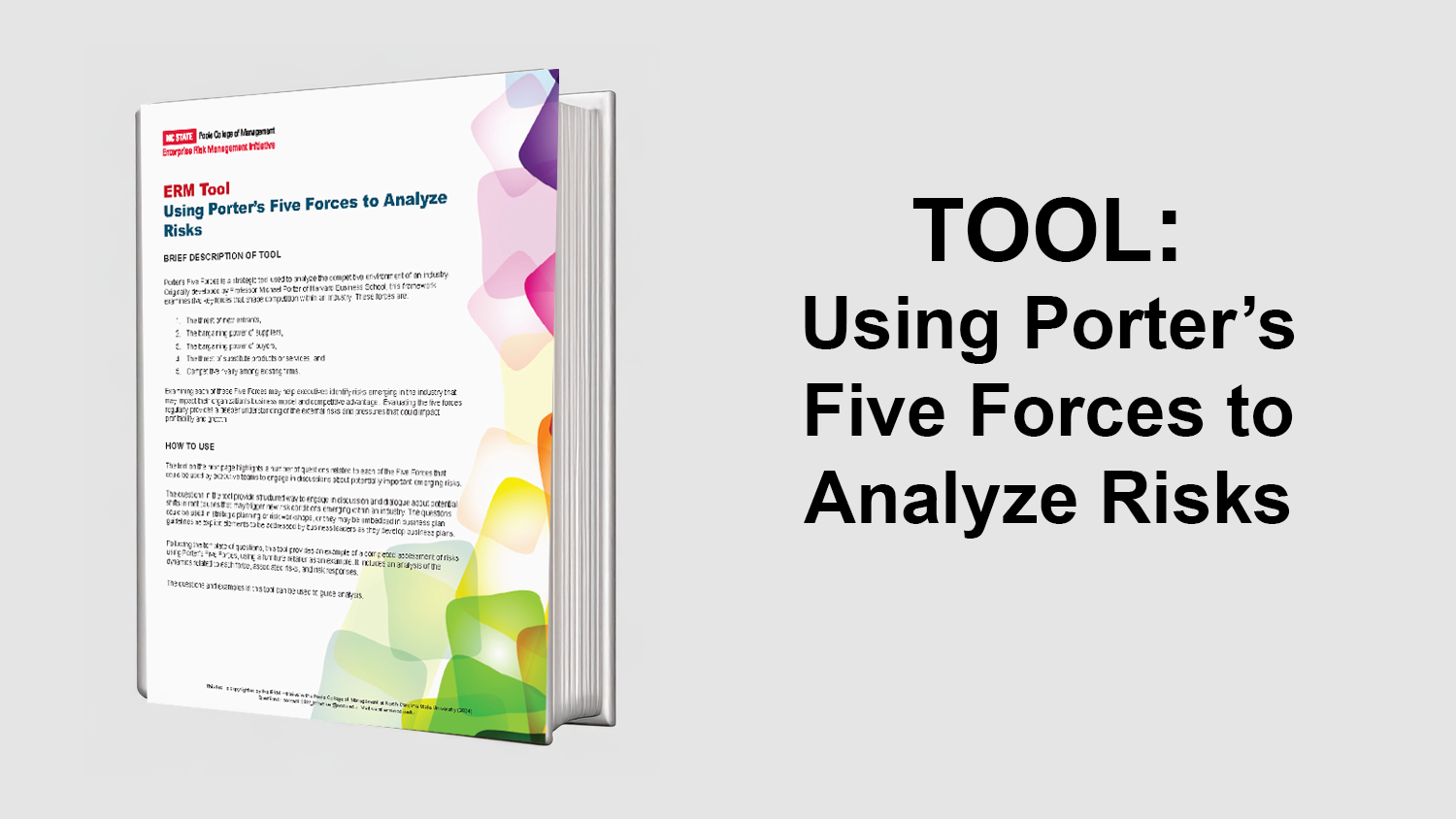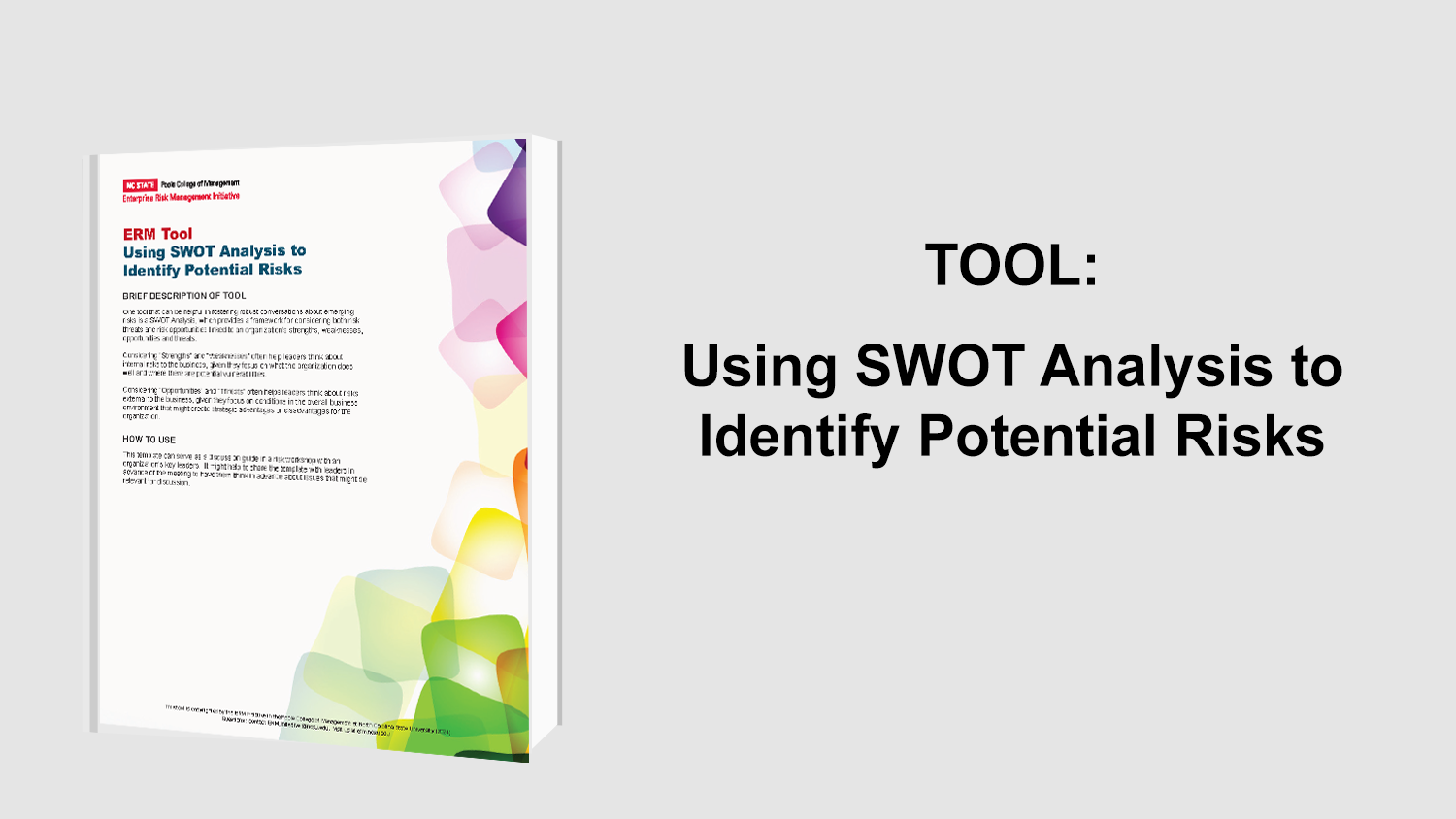BRIEF DESCRIPTION OF TOOL
Porter’s Five Forces is a strategic tool used to analyze the competitive environment of an industry. Originally developed by Professor Michael Porter of Harvard Business School, this framework examines five key forces that shape competition within an industry. These forces are:
- The threat of new entrants,
- The bargaining power of suppliers,
- The bargaining power of buyers,
- The threat of substitute products or services, and
- Competitive rivalry among existing firms.
Examining each of these Five Forces may help executives identify risks emerging in the industry that may impact their organization’s business model and competitive advantage. Evaluating the five forces regularly provides a deeper understanding of the external risks and pressures that could impact profitability and growth.
HOW TO USE
The tool includes a guide that highlights a number of questions related to each of the Five Forces that could be used by executive teams to engage in discussions about potentially important emerging risks.
The questions in the tool provide a structured way to engage in discussion and dialogue about potential shifts in root causes that may trigger new risk conditions emerging within an industry. The questions could be used in strategic planning or risk workshops, or they may be embedded in business plan guidelines as explicit elements to be addressed by business leaders as they develop business plans.
ILLUSTRATIVE EXAMPLE
Following the template of questions, this tool provides an example of a completed assessment of risks using Porter’s Five Forces, using a furniture retailer as an example. It includes an analysis of the dynamics related to each force, associated risks, and risk responses.
The questions and examples in the tool can be used to guide analysis.
For more tools and templates, visit our ERM Resource Center.
- Categories:
- Types:



